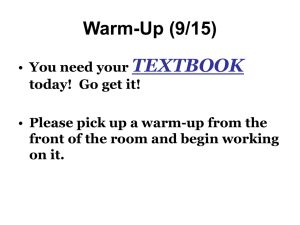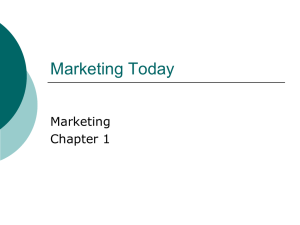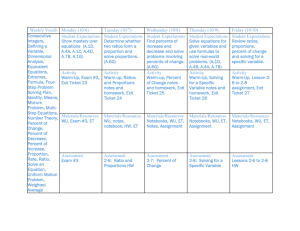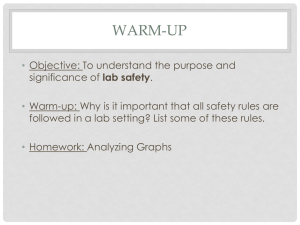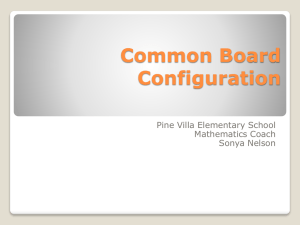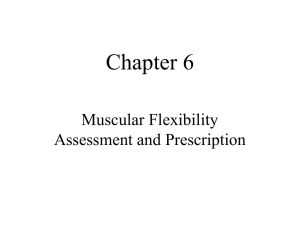Courtney Hicks Weekly Lesson Plan 21
advertisement
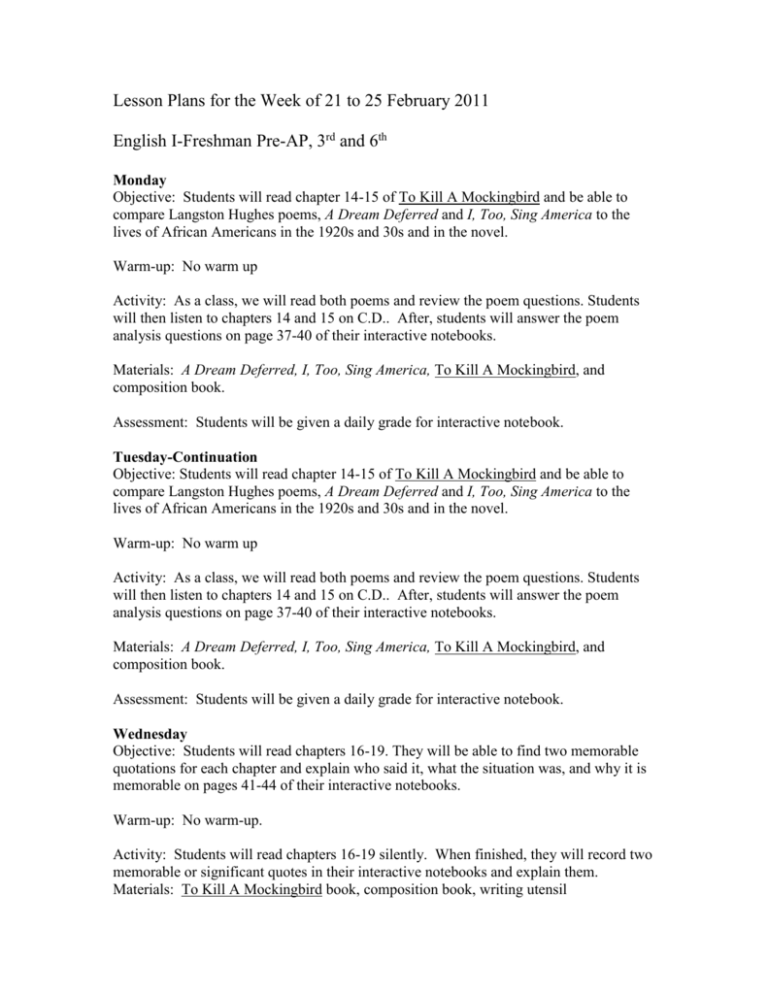
Lesson Plans for the Week of 21 to 25 February 2011 English I-Freshman Pre-AP, 3rd and 6th Monday Objective: Students will read chapter 14-15 of To Kill A Mockingbird and be able to compare Langston Hughes poems, A Dream Deferred and I, Too, Sing America to the lives of African Americans in the 1920s and 30s and in the novel. Warm-up: No warm up Activity: As a class, we will read both poems and review the poem questions. Students will then listen to chapters 14 and 15 on C.D.. After, students will answer the poem analysis questions on page 37-40 of their interactive notebooks. Materials: A Dream Deferred, I, Too, Sing America, To Kill A Mockingbird, and composition book. Assessment: Students will be given a daily grade for interactive notebook. Tuesday-Continuation Objective: Students will read chapter 14-15 of To Kill A Mockingbird and be able to compare Langston Hughes poems, A Dream Deferred and I, Too, Sing America to the lives of African Americans in the 1920s and 30s and in the novel. Warm-up: No warm up Activity: As a class, we will read both poems and review the poem questions. Students will then listen to chapters 14 and 15 on C.D.. After, students will answer the poem analysis questions on page 37-40 of their interactive notebooks. Materials: A Dream Deferred, I, Too, Sing America, To Kill A Mockingbird, and composition book. Assessment: Students will be given a daily grade for interactive notebook. Wednesday Objective: Students will read chapters 16-19. They will be able to find two memorable quotations for each chapter and explain who said it, what the situation was, and why it is memorable on pages 41-44 of their interactive notebooks. Warm-up: No warm-up. Activity: Students will read chapters 16-19 silently. When finished, they will record two memorable or significant quotes in their interactive notebooks and explain them. Materials: To Kill A Mockingbird book, composition book, writing utensil Assessment: Students will turn-in interactive notebook for daily grade. Thursday-Continuation Objective: Students will read chapters 16-19. They will be able to find two memorable quotations for each chapter and explain who said it, what the situation was, and why it is memorable on pages 41-44 of their interactive notebooks. Warm-up: No warm-up. Activity: Students will read chapters 16-19 silently. When finished, they will record two memorable or significant quotes in their interactive notebooks and explain them. Materials: To Kill A Mockingbird book, composition book, writing utensil Assessment: Students will turn-in interactive notebook for daily grade. Friday-Continuation Objective: Students will read chapters 16-19. They will be able to find two memorable quotations for each chapter and explain who said it, what the situation was, and why it is memorable on pages 41-44 of their interactive notebooks. Warm-up: No warm-up. Activity: Students will read chapters 16-19 silently. When finished, they will record two memorable or significant quotes in their interactive notebooks and explain them. Materials: To Kill A Mockingbird book, composition book, writing utensil Assessment: Students will turn-in interactive notebook for daily grade. English II-Sophomores 2nd, 4th, and 8th Monday Objective: Students will be able to use the Roget’s Thesaurus to attack TAKS prompts. Warm-up: No warm up Activity: Teacher will present PowerPoint on “How To Find the Perfect Word” in the thesaurus. Then students will break into partners and brainstorm words they use frequently in their writing. They will look these words up in the thesaurus and find other, better, words to use in a TAKS essay. Materials: PowerPoint, Roget’s Thesaurus, Paper, writing utensil Assessment: Teacher observation that students understand when and how to use the thesaurus. Tuesday Objective: Students will use Café Squidd acronym and examples of good essays to learn TAKS strategies for writing. Warm-up: No warm-up. Activity: Students will create a Café Squidd menu to use as a study guide for TAKS strategies. Students will observe examples of good TAKS essays and class will discuss what made these essays so good. Materials: Café Squidd PowerPoint, construction paper, markers, example essays Assessment: Teacher will observe students participation while creating menus and in class discussion. Wednesday Objective: Students will be able to write an Introduction and Conclusion paragraph that would satisfy a score 3 on the TAKS test. Warm-up: No warm-up. Activity: Students will be given examples of score 4 Introductions and conclusions and score 1 and 2 Introductions and conclusions. As a class, we will discuss what makes the 4s so good and how to make the 1 and 2s better. Then they will re-write the 1 and 2s introduction and conclusions to fit a 4s criteria. Materials: Introduction and conclusions examples, pen, paper Assessment: Teacher will review the 1 and 2 introductions and conclusions after they have been re-done to ensure students know and are using the strategies for building a good essay. Thursday Objective: Students will be able to review and edit score 1 and 2 TAKS essays to evolve into 3 or 4 essays using previously learned strategies and emotional appeals. Warm-up: No warm-up. Activity: Using score 1 and 2 TAKS essays, as a class, we will read and review the essays. We will discuss where the areas for improvement are and how to fix them. Students will also point out where emotional appeals can be added for better effect. Materials: example essays, Emo projector, pencil Assessment: Teacher will observe students’ participation in class discussion. Friday Objective: Students will be able to locate different literary devices within the wall of score 4 essays and explain their significance to the essay. Warm-up: No warm-up. Activity: Students will be sent on a scavenger hunt in the hallways where the wall of score 4 TAKS essays are hung on the walls. They will read these essays and look for specified literary devices and diction, and explain how these strategies enhanced the paper. Materials: Wall of 4 essays, scavenger hunt worksheet, writing utensil Assessment: Students will turn-in their scavenger hunts for a daily grade.
